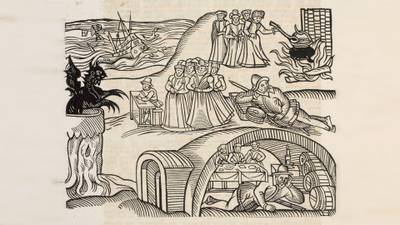Join us online to develop your understanding of decolonisation.
Learn to make meaningful decolonial changes in a range of sectors.
In this Masters-level online short course, you’ll learn to engage in debates about decolonisation and its relevance for real-world challenges.
You’ll explore what decolonisation means across sectors including education, global trade, politics, health, the creative arts, language and culture, and climate governance.
You’ll examine practical examples of decolonisation and learn to apply your learning in your professional career, for example, to:
- revise a school curriculum
- review company policy
- rethink cultural institutions, or
- reconsider healthcare practices.
Outstanding expertise
You’ll learn from an experienced and interdisciplinary team of active academic researchers drawn from anthropology, history, law, modern languages, museum studies, politics and sociology, who all have practical experience of decolonising professional practice and pedagogy in their respective fields.
Who can join this online decolonisation course?
This interdisciplinary course is open to graduates from any discipline.
It’s valuable learning for those seeking or pursuing professional careers in sectors where there are calls for decolonisation, including:
- education
- business
- government
- international development
- arts and culture
- media
- public health, and
- third sector organisations.

Build credits towards a Masters degree
This short course is part of online:
You can use the credits you earn with this short course towards either of these MSc qualifications.

I wanted to have some studies in a UK university in a topic relevant for my sector that is giving me confidence when approaching difficult conversations about decolonisation.
Mireia Pérez Díaz - Decolonising Society and Politics student
What you’ll study
In this course, you’ll cover the following topics.
- Colonialism and decolonisation: historical perspectives
- Decolonising the curriculum – beyond changing reading lists
- Decolonising public health
- Debates and issues in decolonising international trade and finance
- Advances and challenges in decolonising museums and the arts
- Decolonising global trade
- Decolonising climate governance
- Decolonising foreign policy and international development.
Content advice
The content and discussion in this course will address racism, as this is an important aspect of decolonisation.
This content advice is here to prepare you for the discussion of this subject. The classroom will be made a space to engage sensitively with this content in an academic context. Confidential and impartial support is also available from the Student Advice and Support Office.
By the end of this course, you’ll be able to...
-
Discuss the key issues in the debates about decolonisation.
-
Apply insights from those debates to your professional field.
-
Investigate a topic in decolonisation and produce a case-study report.
Choose the University of Aberdeen for online courses in decolonisation

Fits around full-time work
This online course fits around work, with flexible hours and 24/7 study access.

1st in Scotland for French and Iberian Studies
We’re ranked 1st in Scotland for student positivity for both French Studies and Iberian Studies in the National Student Survey 2024.

2nd in Scotland for Sociology
We’re ranked 2nd in Scotland and 7th in the UK for Sociology in the Times and Sunday Times Good University Guide 2025.
How you’ll study
Online learning
This distance-learning decolonisation course is delivered flexibly, 100% online.
You can learn with us anywhere, no student visa required, and manage your study hours to suit you.
Your teaching
This course is taught at Masters level.
Teaching is delivered through MyAberdeen, our online Virtual Learning Environment (VLE). It holds all the materials, tools and support you’ll need in your studies. Take a look around MyAberdeen.
You can access your learning materials on computer, smartphone and laptop, 24 hours a day. You’ll find a range of resources available, including:
- videos
- pre-recorded video lectures
- online tutorials
- audio clips
- podcasts
- slide shows
- reading materials
- discussion boards with your tutors and peers
- the online resources of our award-winning Sir Duncan Rice Library.
Your tutors
This course is delivered by our School of Language, Literature, Music and Visual Culture.
You’ll learn from an experienced and interdisciplinary team of active academic researchers drawn from anthropology, history, law, modern languages, museum studies, politics and sociology.
This course is assessed online.
You’ll be assessed throughout the course via:
- a piece of research that you’ll present in a short video (worth 30% of your final course grade), and
- a written report (70%).
This course totals approximately 300 hours of study and assessment time.
That’s around 15 – 20 hours per week in regular topic work and independent study, with more time required around assessments.
This is an indicative guide to the time required for a typical student at this level to achieve the learning outcomes. This includes time for independent study, as well as teaching and assessments.
You can largely set your own study hours to cover the materials. MyAberdeen is available 24/7, so you can log in and study when it suits you.
Activities at fixed times
There may be some activities scheduled at fixed times, such as online meetings with your tutor or assessments with deadlines. But otherwise, you can access and work through the course at your convenience.
Our first-class support structure will ensure that you aren’t alone in your studies. You’ll have contact with your coordinator via email, MyAberdeen and Microsoft Teams. You can use social media and discussion boards to chat with your fellow students too.
We provide a wide range of services to support you in your studies and beyond:
- Careers and Employability Service
- Disability support
- IT support
- Library support
- Student Support Service – help with finances, wellbeing, and non-academic issues
- Student Learning Service – study skills support and advice
- Aberdeen University Students’ Association (AUSA) – run by students for students
- Toolkit – clever apps and free training that can make your study life easier
Wherever you are in the world, you’ll feel part of our very special Aberdeen learning community.
Your teaching team

Professor Nadia Kiwan
Nadia is Professor of Francophone Postcolonial Studies at the University of Aberdeen, and founding Director of the Centre for Modern Languages Research.
Nadia’s research interests focus on European governmental and media discourses about postcolonial migration, secularism, Islam, ‘border control’, as well the contestation of such discourses, via decolonial, intersectional and transnational social movements.
View Nadia’s profile
Professor Trevor Stack
Trevor is a Professor of Spanish and Latin American Studies at the University of Aberdeen.
He is Director of the inter-disciplinary Centre for Citizenship, Civil Society and Rule of Law (CISRUL), which focuses on the study of political concepts in the world. CISRUL has hosted conferences on topics including decolonising political concepts.
Trevor’s research focuses mainly on aspects of citizenship and civil society, and he has been carrying out research in Mexico since 1992.
View Trevor’s profileWhere this will take you
Towards a Masters
You’ll earn 30 credits at Masters level (SCQF Level 11) with this course. You can use these credits towards our online:

MSc Cultural Memory, Heritage and Society
Build your academic skills in memory, heritage and social studies. Tailor your degree programme to your own interests.
View MSc Cultural Memory, Heritage and Society
Masters in International Relations
Develop a deep, critical understanding of contemporary global challenges, power structures, and the evolving nature of international politics.
View MSc International Relations
Masters in Translation Studies
Develop your linguistic and entrepreneurial skills, and learn what’s required to succeed in the translation industry.
View MSc Translation StudiesCareers
Decolonisation is a current demand across public and private sectors, including:
- education
- government
- arts and culture, and
- business.
This course will help you to understand the debates around decolonisation and apply them in your profession, enhancing your employability and promotion prospects whatever your sector.
Continuing Professional Development (CPD)
Your employer or professional institute may recognise this course for CPD hours. Talk to your employer or institute to find out more.

Free career support
Access our free careers service while you study.
- 1:1 appointments
- CV checks
- Interview prep
- Job opportunities
I feel better equipped and able to engage in a meaningful way with challenging topics in the workplace and I feel this course has added more depth to my professional skill set.
Louise McGrath - Decolonising Society and Politics student
Choose the University of Aberdeen for flexible online short courses

Over 525 years of excellence
Study with the fifth-oldest university in the English-speaking world, founded in 1495.

Learn anywhere
On smartphone, desktop and laptop, with no need for a student visa.

20% alumni discount
University of Aberdeen alumni get 20% off fees for this online course.
Entry requirements
Entry requirements
We welcome students from all over the world.
This course has no formal entry requirements. You do not need to provide proof of your qualifications.
But you do need to check the entry guidance above to understand the level of teaching delivered, to decide if this course is right for you.
If you do not have qualifications from the UK, check the equivalent teaching level for your country.
Visa requirements
You do not need a student visa to study online with us.
English language requirements
Teaching is delivered in English.
You do not have to provide proof of your English language skills to join this course. But we want to make sure that you can use English well enough to study successfully.
Recommended level of English
This course uses our Postgraduate Higher level of English language proficiency.
These are our Postgraduate Higher requirements, and these are minimum scores.
IELTS Academic, IELTS UKVI Academic, or IELTS Online (not IELTS Indicator or IELTS General Training)
- 6.5 overall
- 5.5 for listening and speaking
- 6.0 for reading and writing
TOEFL iBT or TOEFL iBT Home Edition
- 90 overall
- 17 for listening
- 21 for reading
- 20 for speaking
- 21 for writing
- TOEFL DI code is 0818
Cambridge English: B2 First, C1 Advanced, or C2 Proficiency
- 176 overall
- 162 for listening and speaking
- 169 for reading and writing
LanguageCert Academic / LanguageCert Academic SELT
- 70 overall
- 60 for listening and speaking
- 65 for reading and writing
Oxford ELLT Digital – English Language Level Test Online
- 7.0 overall
- 5.0 for listening and speaking
- 6.0 for reading and writing
PTE Academic (online test not accepted)
- 62 overall
- 59 for listening, reading, speaking and writing
Skills for English: SELT
- B2 pass with merit
Duolingo – tests taken from 1 July 2024 onward
- 120 overall
- 95 for listening and speaking
- 105 for reading and writing
University of Aberdeen English Pre-sessional Programme (PSE)
- Pass
- Valid for one year. Refresher can be offered if out of date
Pre-sessional academic English preparation programmes undertaken at other UK universities
- Pass at an equivalent of 6.5 (C1)
- B2 in all four skills
- Certification must be within one year prior to the start of your course
For more information about language qualifications see our English Language Requirements page.
You will need access to:
A computer (PC, laptop or Mac) with an up-to-date operating system
Most teaching materials are smartphone- and tablet-friendly. But we recommend a proper laptop or desktop for completing assignments comfortably.
Reliable internet access
We recommend:
- a wired connection
- a minimum download speed of 2 Mbps so you can take part fully in live sessions.
Speakers or headphones
- We recommend a headset with built-in microphone and earphones if you’re likely to study in an environment with background noise.
- A webcam is optional, but you may like to use one for some interactive sessions.
Software
We’ll give you access to Office365 applications. This means you can use online versions of Microsoft Word, Excel, PowerPoint and OneDrive and install these programs on up to five personal devices.
If your course requires specialist software, we’ll provide you with access to this and a licence that lasts throughout your studies.
See our detailed IT requirements for more information.
When you study with us, you can expect a first-class support structure so that you’re never alone in your studies.
But learning online does mean you have to motivate yourself and manage your own time.
Your most important commitment will be time – the time to work through, reflect on and understand your teaching materials.
Before you start a course that involves a high degree of independent study, we recommend looking at the time you will be able to devote to your studies each week:
- Be realistic
- Create a weekly schedule as a guide
If you have any questions about studying online, get in touch with our friendly team. We’re here to help.
Fee payment
Your course fee needs to be paid in full before you start your course.
We accept payment via Visa Debit, Visa Credit and Mastercard.
Ways to save
You may be able to get help funding this course via:
- discounts – if any discounts are available for this course, they’ll appear in the section below
- employer sponsorship – we accept full and partial fee payments from sponsors.
Find out more about funding options.
Student card
All our students are entitled to a University of Aberdeen student card. This gives you access to a range of student discounts around the city and online.
Learning resources
Access to all the essential books and resources you need are included in your tuition fee. They’ll be made available to you online and you do not have to buy your own copies.
We also provide optional recommended reading lists. Many of these resources are available electronically through our library, although purchases may be required if you wish to read the full list.
Printing
You may want to set aside a small budget for printing, depending on how you like to work.
This course has no formal entry requirements. You decide if it’s suitable for you.
The course is delivered at Masters level. At this level, you’d usually have at least:
- a 2:2 UK undergraduate degree (or equivalent), or
- relevant experience that supports this level of study.































